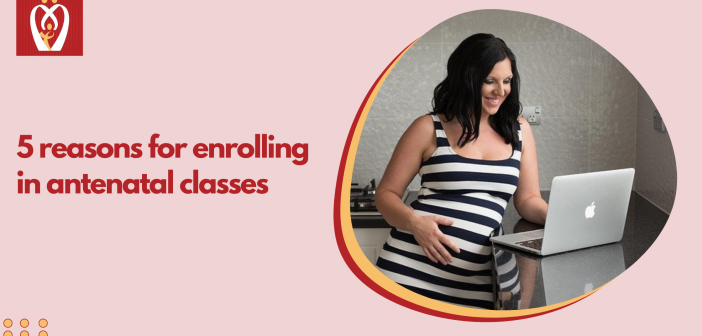You must be wondering if conventional antenatal classes are still required in light of today’s plethora of online resources devoted to birthing and childbirth-related topics.
If you’re expecting your first child and don’t already have a decent antenatal class, there are many wonderful reasons why you should take one, even with all the technology at your disposal.
Build a support system
This is the most crucial reason for taking antenatal classes. There are many first-time parents who fail to grasp the difficulty of getting out and meeting others who really understand what you are going through since they are in the same situation. This is especially true after the birth of your child. Having a group of other new moms with whom you’ve formed bonds over time may go a long way toward alleviating the sense of loneliness that many new parents experience.
There is no way you can create those kinds of connections in a one-time program that doesn’t offer you much opportunity to socialize. It’s important to get out of the home and interact with other new moms in the first few weeks after the birth of a child so that you have a purpose for your day and something to look forward to when you’re feeling sensitive or fragile. Emotional release may be achieved by laughing and sobbing together during a difficult period.
Having a positive outlook on your birth
You’ll learn more than just “what to do when labor begins” in antenatal classes. There will be additional time to cover a broad variety of issues related to your birth as the course progresses. An opportunity to evaluate possibilities that you may not have previously considered while in a “safe” environment where you may voice your concerns, ask questions, and acquire as much relevant information as you need to make the decisions that are best for you will be provided. It’s crucial that your prenatal teacher be knowledgeable and experienced so that she can answer your questions in a manner that doesn’t tell you what to do, but rather encourages you to reflect on what’s most important to you and gives you the confidence to take “ownership” of your birth experience. Therefore, she will encourage you to think about how taking responsibility for your birth may result in a happy experience, no matter what happens.
Experimenting with parenting’s minefield
As every new parent will tell you, there are probably as many parenting styles as there are children being raised. This is due to the fact that every child and every family are unique, and what works for one may not work for another. The first time you’re having a child, it’s tempting to assume that “babies are babies” and that there’s a single solution to any question you could have about your little bundle of joy. Good antenatal classes will teach you that no two newborns are alike and that you may nurture your child in a manner that feels appropriate to your family as a whole.
A lot more than simply a list of facts
You don’t want someone who will simply tell you about their own experiences having infants or their thoughts on any particular issue; you want someone who will provide you with solid, evidence-based knowledge in antenatal classes. If you’re taking an antenatal course, it’s important that you’re able to examine your emotions and not only focus on the facts. It’s an emotional, spiritual, and life-altering experience, one that’s both exhilarating and nerve-wracking, full of both opportunities and obstacles.
Until you have a child of your own, it’s difficult to imagine what it’s like to give birth or be a parent, but imagining how certain things can make you feel might help you remember “Oh yeah, we spoke about this in class,” when the time comes. “Aha! I see now!” You must first recognize that your instincts exist and are worth following in order to learn to trust them in the birthing room and with your new baby.
Going outside of your comfort zone
If this is your first child, the process of giving birth may cause you some discomfort while you’re pregnant. Antenatal classes will not only help you address these worries, but they will also help you cope with them in the event that they do come true. After giving birth, you realize how minor those anxieties were while you were in labor, but it’s hard to believe when you’re pregnant. If you’re taking a good antenatal course, you’ll also be forced to practice labor positions and breathing methods with your spouse in a group of other people who are doing the same thing. If they can do it in class, they can do it in labor, too.




